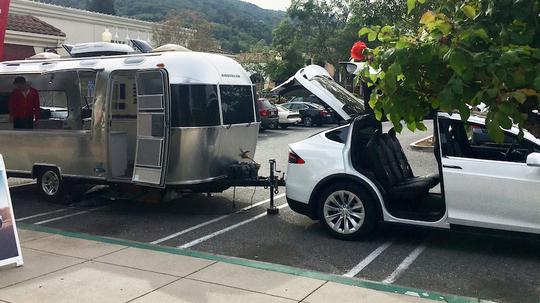
It's become mainstream, the idea of an ecommerce shop or local artist having a brick-and-mortar shop just "pop up" for a couple of days to showcase its work.
Union Market hosts a variety of different pop-ups each month. Artists host pop-ups in abandoned lots between projects to showcase their work. Pop-up bars, such as the latest Game of Thrones pop-up, draw crowds with 2-3 hour waits.
That's why Rockville, Md-real estate group Federal Realty decided to get in the game themselves. I spoke with Mike Kelleher, who is responsible for all pop-up and promotional spaces under Federal Realty, about the growing trend, how they attract new clientele and the challenges that arise when managing a series of pop-up spaces.
DC Inno: Can you tell me a little bit about when you all saw the opportunity in pop-up real estate?
Mike Kelleher: I think it's more of the industry transforming as opposed to us.
The industry more transformed just based on the popularity of online and how strong online shopping has been, and people are actively understanding that you can't just be online or you're limited if you're totally online. So, you branch out, expand yourself. I'll give you an example: We have people around the country who will pop-up in California, see how their product does in L.A. or San Jose or Washington, D.C. or Boston, New York, Miami.
The industry, meaning on the retail side, has transformed the real estate side as opposed to the other way.
What are the ideal spaces to use for these one-day, three-day pop-ups? I'm sure it varies.
You have to have the vacant space, right? So, the majority of our shopping centers or anybody else's shopping centers are a meetup of tenants in there for five-year leases then eight-year leases then 10-year leases.
Then after you have the space, and what I tell people is that whether they're doing this with us or with someone else, I tell them all the time just make sure you understand the center, the traffic flow of the center. Is there a good space? Is this in a high line of traffic? Is this where people tend to pilot around a lot? Is it next to a great in-line permanent tenant that's there?
What types of clients are you seeing, and how vast is it?
In terms of our outreach and things like that, we're massive. We just did a pop-up store with someone who does virtual reality — go into the space, put on the headset and you do the virtual reality. We've done ones with women's apparel, men's apparel, Etsy has been a big part of this.
We just did a store in Bethesda with a guy who has a store in downtown D.C. who sells very high-end men's apparel, and he wanted to try out Bethesda. We popped up for like three days, and now he's come back for three months.
It's vast. It's anything you can think of that anyone can sell or promote — anything like that with the exception of probably restaurants.

What are the benefits for your clients to do a pop-up and have a short-term space?
One, it's the person who is out there who has been online. So, their goal might be to pop-up every so often, maybe three or four times a year with us, to just build more clientele and get more eyes to see their things and stuff like that.
Other ones, which is the more common, are the ones who say "OK, I got this online thing down, I'm doing well, I'm optimizing and doing all the things you do online," and then they go and say "but the majority of retail still is brick and mortar, by a huge margin." Online's been everything anyone's been talking about for the last three, four, five, six years — whatever it's been — but in reality, the majority of retail happens physically on the ground, in a brick and mortar space.
A lot of those people come back and say "I want to stay for another month, or two months," and a lot of those people will pop-up for one month and say "Hey, can I get a one-year deal?"
On the flip side, what are some of the challenges that come with managing this type of space and short-term storefronts?
What happens is that the tenant wants to come do it, so the big question from a landlord side normally would be rent. So, what are you going to pay us in rent for the time that you're going to be there? You know, that's just a fact of life that is a part of it.
We don't get driven by rent alone, so a lot of it is getting exposure and if I take a store and it pops up with us or anyone for months, what's the future of that? It's a case of staying in touch: Can someone pop-up in other locations? Can someone pop-up multiple stores? Things like that.
The challenge is for the people because people do this. They don't necessarily know about brick-and-mortar retail or how to work with landlords and what to expect from landlords.
They generally come in and don't know anything about what they're doing other than they want a brick-and-mortar space. That's why I profess to people: Know the shopping center, talk to the tenants there and see how business is doing there.
Tell me a bit about the relationship Federal Realty has with some of the landlords.
What I've really encouraged a lot of people to do is move towards a short license agreement. You have to be quick, and the bigger the landlord, the longer it takes to get a deal done. If you and I want to open a pop-up store, we want to do it like tomorrow, not go through an approval process that takes three months.
We've encouraged people to really shorten your approval process — it's really not hard to figure this out. If someone is popping up for a week, do you really need to think about that for a month?
Ease of entry, easy agreement, turn it around really quick and make it work for the tenant so the tenant is engaged and gets to do what they want to do.
D.C. is no more challenging, no less challenging.
What other things are on the horizon in terms of outreach and getting the word out?
I do not do this alone. We do not have a big staff, but a lot of people work really hard. I've reached out and have a relationship with Shark Tank, so you see those people who come on and either get funding or don't. We reach out to them and ask them "How do we get you what you need to get in terms of in-line space?"
Kickstarter is another huge one, where I can come across an awful lot of concepts and things like that.
What does this market look like in D.C. specifically? Are there any unique challenges or clients?
D.C. is like all of the major cities, and we get properties that are high population areas, major cities, with great demographics. D.C. is no more challenging, no less challenging.
The only thing that I would say about D.C., and Miami to some degree, is that there is a lot more there. What I mean by that is it's a very unique mindset, as opposed to a static one that says I just want to sell shoes. D.C. is exciting to do what I do, you walk streets and knock on doors.
We're in the all of the major cities on the East and West coast, so you get to see a whole lot, and it's no more challenging or less challenging here than any of those cities.




